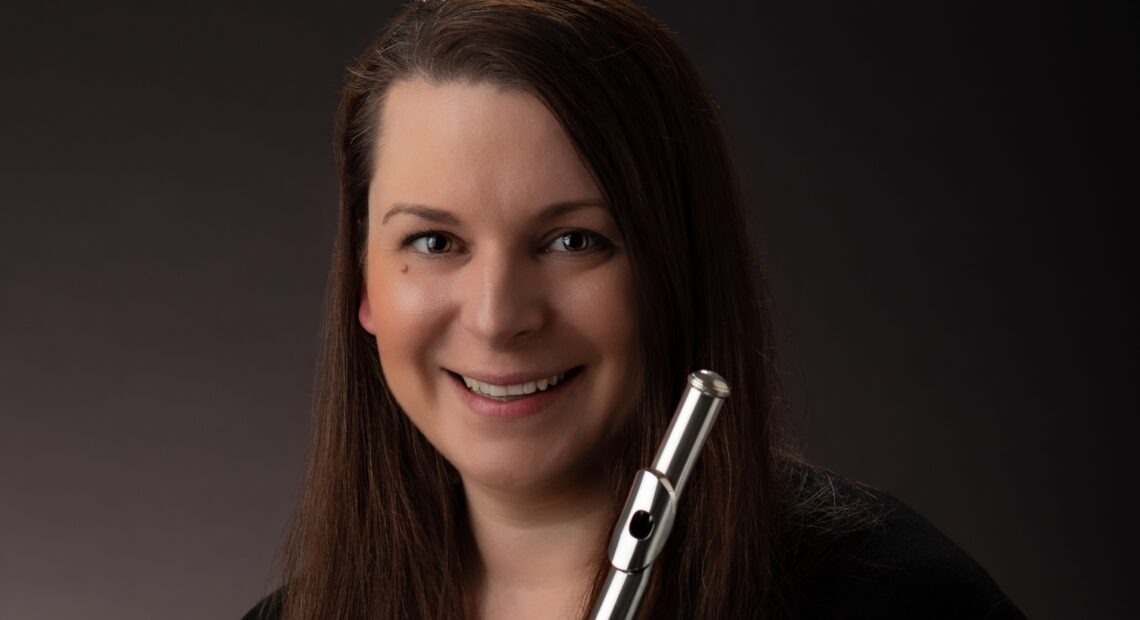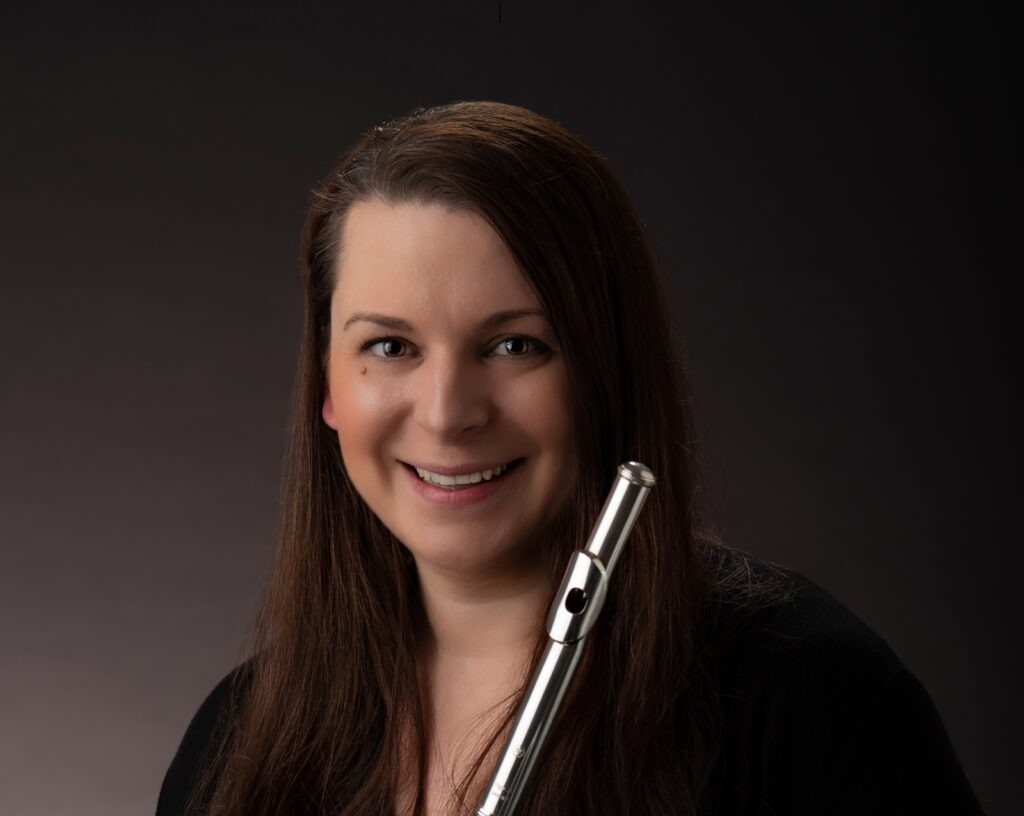
Passing The Baton: Professor of Flute and Music History Dr. Sophia Tegart

Listen
The last time orchestras had a regular concert season, few works by female composers were played. In fact, less then 9% of music programmed by the top orchestras in the U.S. were by women composers.
So, where are all the women? Dr. Sophia Tegart, professor of flute at Washington State University, is making sure they take a prominent place in her lesson with students and her music history classroom.
Tegart’s history class covers music created before 1650. That means she covers a wide variety of music including Gregorian chant, madrigals, and the beginnings of opera and ballet.
“When we’re talking about early music and chant,” she says, “I really try to focus on how the music fits into society, and politics, and history in general, instead of focusing on the specifics of every piece that we learn about. I find that the students retain more information if they’re thinking of it as how it fits into what was going on during that time.”
Tegart also puts a special emphasis on exposing her history students to more music by women composers, like Hildegard von Bingen, Maddalena Casulana, and Barbara Strozzi. She says, “I try to highlight all the women composers and talk about the impact they had on music at the time, the impact they night have had on women that followed. I also talk about why we are seeing that little of a number of women composers. There were more women composers prior to the 20th century than people realize. There are so many of them, and their music is beautiful. So I try to make sure my students, both in the music history class and my flute students, I make sure that they, understand this.”
It’s a mission that is so important to Tegart because of her own experiences as a student. “I just want to make sure they are exposed as early as possible so that they don’t do what I did in early flute lessons,” she says.
Tegart recalls those early lessons. “It might have been the eighth or ninth grade. I did not get exposed to women composers early on. My teacher said why don’t you play this piece by Cecile Chaminade,” she says. “And I was so ingrained in the way of my thinking that only men were composers, that when I saw the way Cecile was spelled, with an ‘E’ at the end, which implies that she’s a woman, I thought to myself, ‘Oh that’s clearly a typo,’ because I had never seen a woman composer. I just don’t want the students that are coming up to even have to think that. I want them exposed early so that their norm is, ‘Women are a part of this.'”
Tegart is doing her part to make that vision a reality, one classroom, and one exam, at a time.
“Maybe I’m giving away my secret,” she says. “But I also include this on the tests because it’s not just information I’m giving to them, and I’ll be telling them, Oh yea, there were women composers, but we’re only going to test you on the men. They can always expect to see women represented throughout the entire class.”
She is presenting her methods on incorporating music by women composers into classrooms and lessons as part of an upcoming presentation at this summer’s Washington State Music Teachers Association conference.
When asked why she thinks women composers are so under-represented in music classrooms and in concerts, Tegart had this to say: “I think that we’re so used to seeing male composers. They were the ones getting published and performed in public. Society has created that norm throughout centuries – a mindset that there were no women composers. We’re just now starting to break through that a little bit more. It’s just a matter of conditioning that has caused our brains to think that way. I guess I’m trying to recondition the human brain.”
And like many teachers, she is eager to get back to it, when she sees her students again in person this fall.
Passing the Baton is a series on music mentors from NWPB Classical. See more in the series here.
Related Stories:

Passing the Baton: Teachers And Their Music
Freshly sharpened pencils. New spiral notebooks. Markings of a new school year and a new opportunity to fill your brain with math and English and music. Many composers led double lives as teachers, and some of the music we remember best originated in the classroom.

Passing The Baton: WSU Tuba Professor Dr. Chris Dickey And Student Tim Schrader
When a student becomes an award-winner, you congratulate the teacher, right? A teacher like Dr. Chris Dickey, assistant professor of tuba at WSU. His student earned this year’s first prize in European Music at the Charleston International Music Competition. The student is WSU sophomore Tim Schrader.

Passing the Baton: From Isbin And Hauser To Bellingham Symphony Music Director Yaniv Attar
Conducting a symphony orchestra is hard. It takes a special set of skills to bring out just the right sound from a stage full of players. Even after Bellingham Symphony’s Music Director Yaniv Attar finished his studies with legendary classical guitarist Sharon Isbin, he found that she still had a thing or two to teach him about conducting.















